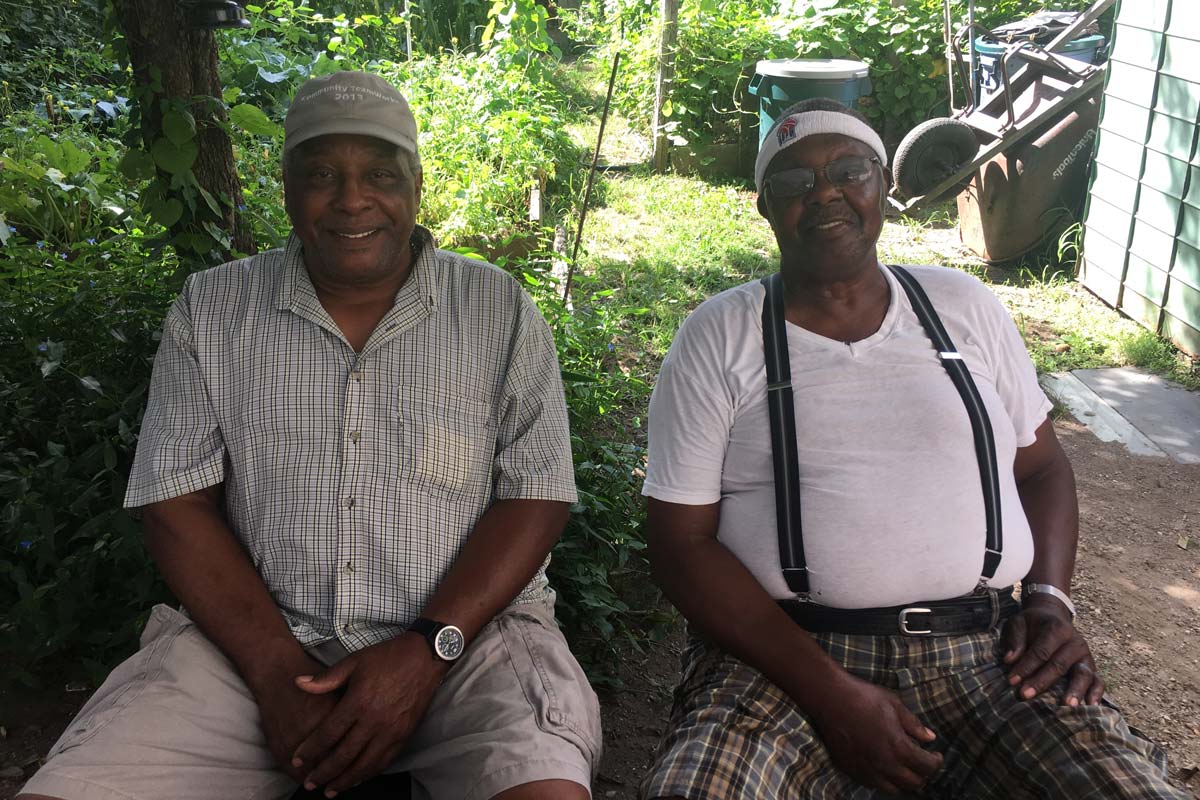Our Mission
Community gardens are an important physical, ecological, and economic resource to the City of New York. Community gardening strengthens our communities, enhances our lives, and provides recreational opportunities and beauty to city neighborhoods.
The mission of the Brooklyn Queens Land Trust (BQLT) is to:
Ensure the conservation and preservation of open space in perpetuity, for the benefit of the general public
Act as a steward of the open space properties that BQLT owns
Establish a community of gardeners in Brooklyn and Queens
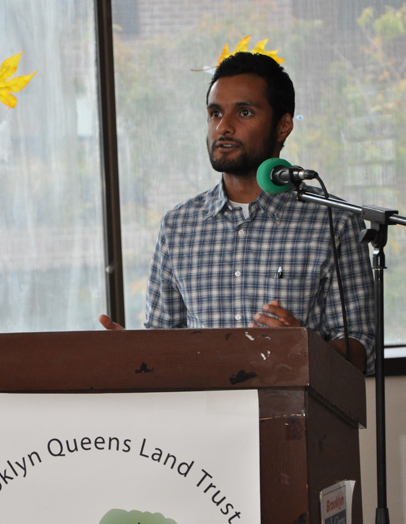
Educate
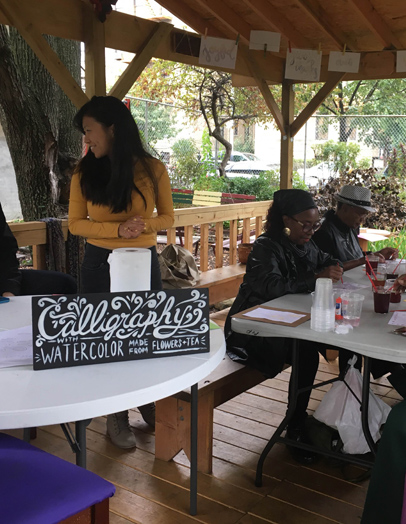
Support
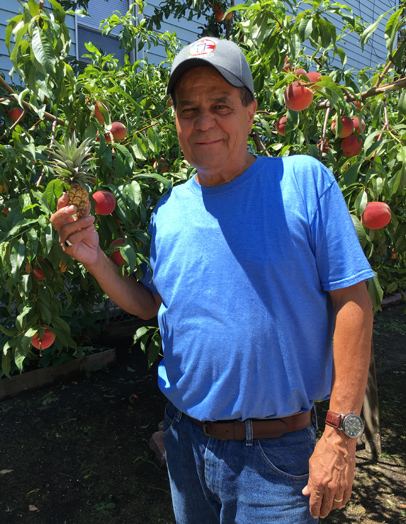
Promote
Help BQLT achieve its mission by joining a BQLT garden, joining the BQLT board of directors, and/or donating to BQLT!
"Our Gardens, Our Stories" Oral History Project (2016) in partnership with the Brooklyn Public Library, features 19 garden founders' stories.
Community Garden Leaders (2018-19) by photographer Zachary Schulman, features 5 BQLT garden founders' portraits and quotes.
In 1999, New York City public garden spaces were in danger of development due to former Mayor Giuliani's plan to auction off 112 community gardens.
Hundreds of community gardeners spent years organizing, demonstrating, and filing lawsuits to save their gardens from development.
With the auction looming, then Attorney General Eliot Spitzer joined the gardeners’ lawsuit and stopped the auction. In 2002, Mayor Bloomberg signed a deal negotiated with Spitzer and The Trust for Public Land (TPL) to pay $3 million to save 69 gardens as permanent open spaces. Bette Midler, who paid $1.2 million and founded The Restoration Project, saved other gardens. TPL invested in physical improvements, such as fences, tool sheds, and sidewalks, to make the gardens safer and more inviting, and then organized local land trusts to take care of the gardens.
In 2004, the Brooklyn Queens Land Trust (BQLT) was incorporated to manage 34 gardens--29 in Brooklyn and five in Queens--with a plan to eventually own those gardens. BQLT is now a 501 c(3) non-profit organization comprising a 15-member Board of Directors, staff, and 600+ volunteer gardeners. BQLT has a grassroots structure where the gardens are the members and garden representatives act on behalf of their gardens in an official capacity (either on the BQLT board or as voting members).
BQLT is now the owner of 35 community gardens and the lease-holder of two additional gardens. BQLT-owned gardens cannot be sold or developed and are permanently saved as open spaces. Located in 20 different neighborhoods through Brooklyn and Queens, BQLT gardens provide opportunities for diverse groups of people to meet and work together cooperatively.
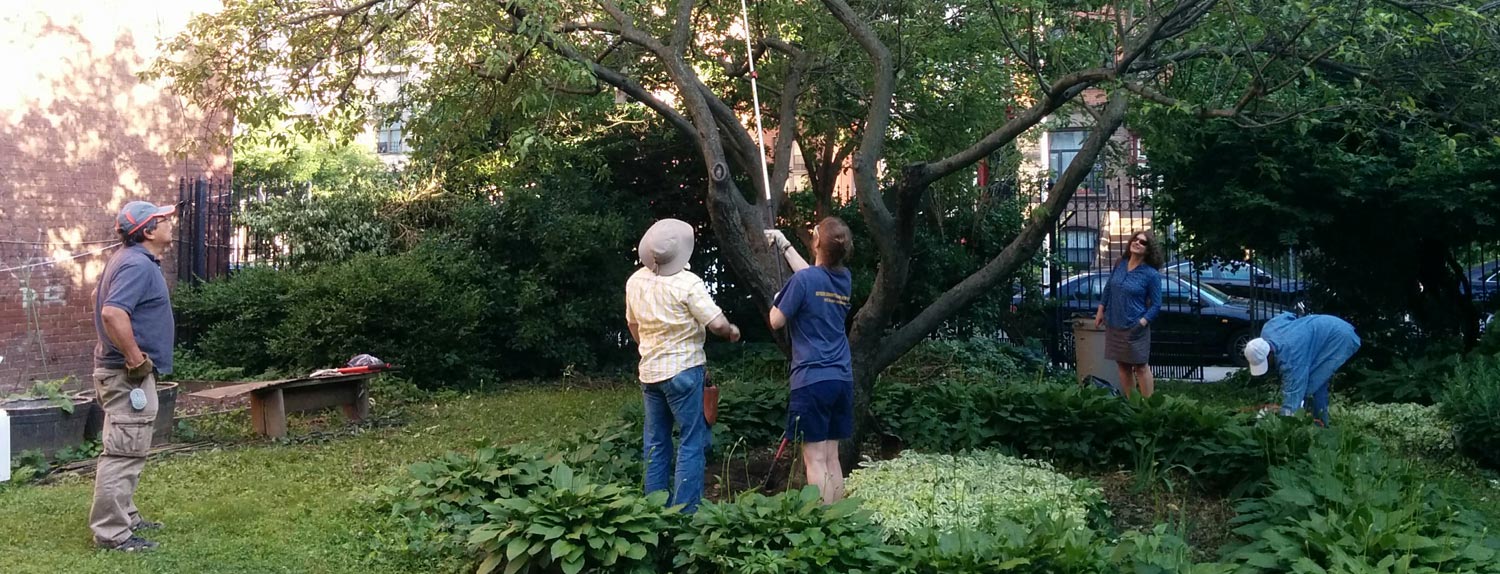
What We Do
Many BQLT gardens were once vacant, trash-strewn lots, converted through the hard work of community residents into the thriving public green spaces they are today.
BQLT gardens provide surrounding communities with vital access to open space. They are hubs for gardening, learning, arts, and culture. They bring together neighbors of all ages and backgrounds, strengthening the social fabric of our communities and making them healthier, safer, and more sustainable. Most BQLT gardens are used for urban agriculture, with a wide range of vegetables, fruits, and herbs grown for local consumption. Many BQLT gardens are located in lower income communities, where access to fresh produce is scarce. Having the space to grow nutritious food in one’s own neighborhood is an important step to improving the health of our communities. At BQLT gardens, summers are filled with fish fries, cookouts, concerts, and art exhibits. Many gardens also serve as open-air classrooms, providing students of all ages with opportunities for hands-on learning. The gardens are a catalyst for community involvement and volunteering.
So what is BQLT’s Role?
BQLT makes sure its gardens are protected so that gardeners can focus on the work that they love. BQLT provides liability insurance to all of its gardens and manages the paperwork associated with its properties (including ensuring that all non-profit paperwork is submitted and up-to-date). For gardens connected to the city water system, BQLT covers the cost of water usage. BQLT also provides needed support to ensure that its gardens remain fully operational at all times. This may include fixing a damaged fence, removing a fallen tree, or making capital improvements to enhance a garden space.
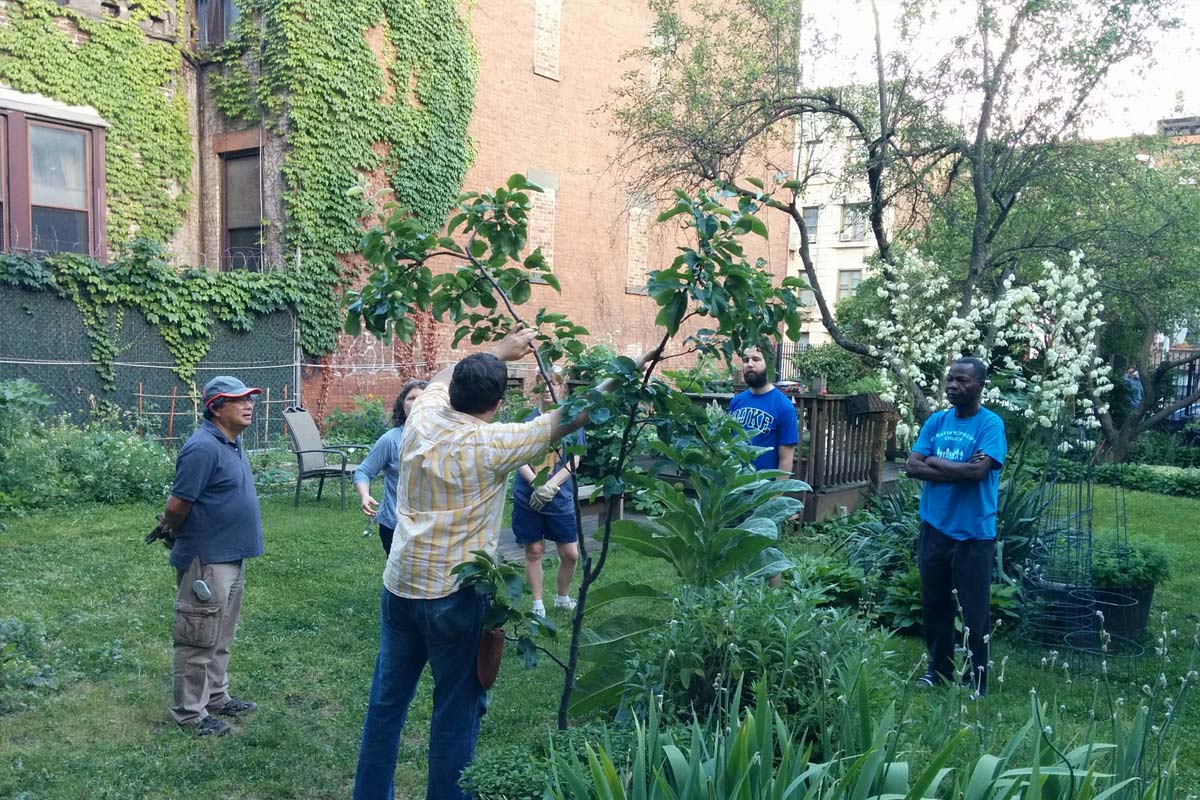
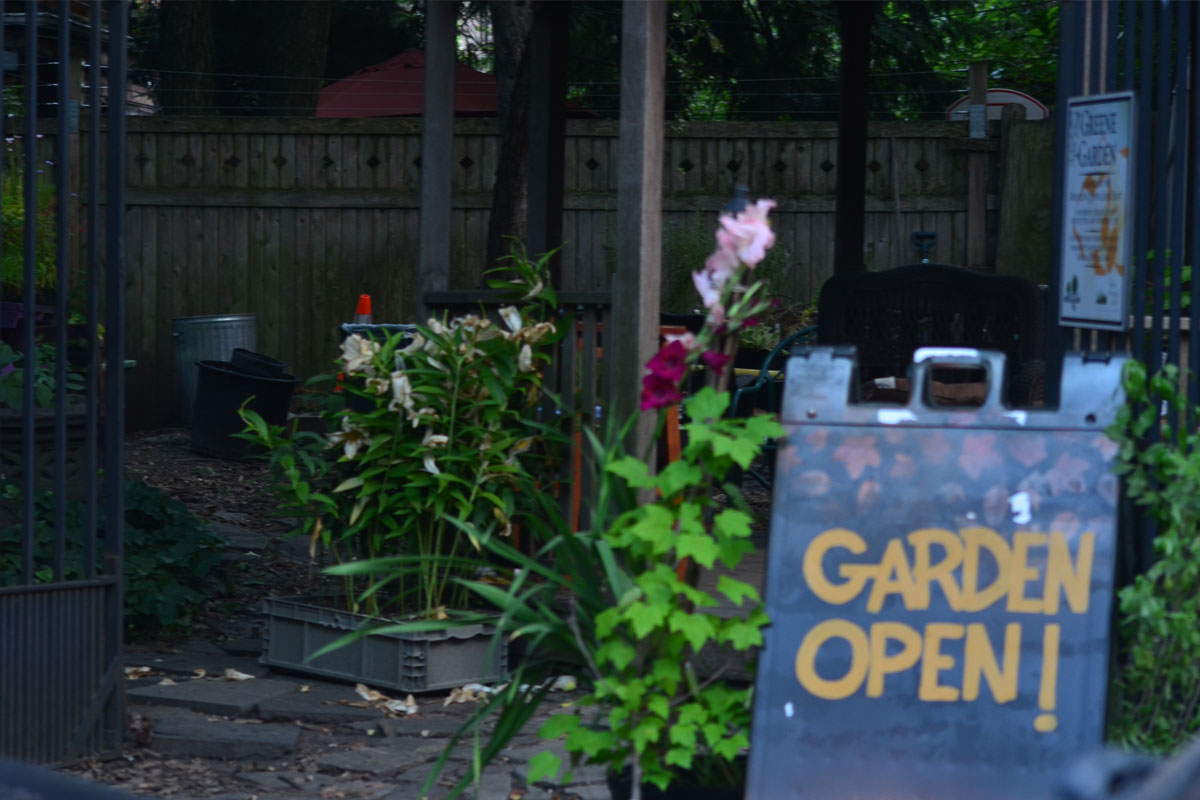
BQLT hosts several annual events that bring BQLT gardeners together to recognize each other’s accomplishments, share resources, and develop their skills. This includes an annual bike tour/open garden day each fall and a Celebration of Gardens that takes places at the end of each garden season. Throughout the growing season, BQLT’s operations committee holds its meetings at a different BQLT garden each month, bringing together gardeners throughout the BQLT community to see each other’s spaces, discuss common challenges, and share resources.
As BQLT has grown, it has begun implementing targeted, cross-garden projects that benefit BQLT gardens and surrounding communities. In 2016, with funding from New York Community Trust, BQLT implemented the Neighborhood Coalitions Project to encourage healthy eating and build community within and across four BQLT gardens in Crown Heights/Bed-Stuy. Currently, BQLT is implementing the CIRCLE Initiative, an ambitious project that fosters community and environmental sustainability across BQLT’s full network of gardens.
